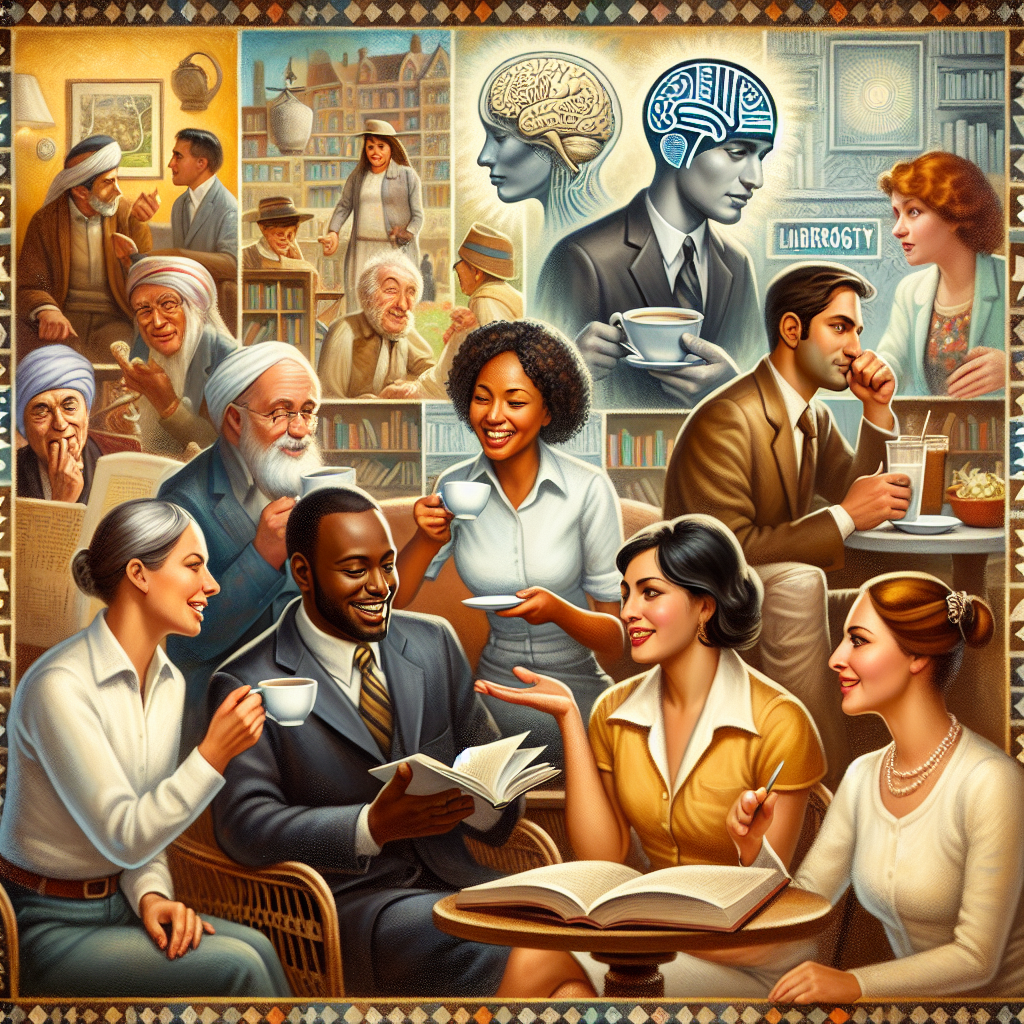The Power of Personality: How Knowing Your Type Can Improve Relationships and Communication
Understanding yourself and others is an essential aspect of building strong and healthy relationships. One of the key factors that influences our interactions with others is our personality type. Each person has a unique set of characteristics, preferences, and behaviors that make up their personality, and understanding these can improve communication and foster deeper connections with others.
Personality types are often categorized using tools such as the Myers-Briggs Type Indicator (MBTI), the Enneagram, or the Big Five personality traits. These systems help individuals understand their own personalities and how they relate to others, providing valuable insights into how to navigate relationships and communicate effectively.
Knowing your own personality type can help you identify your strengths and weaknesses, as well as your communication style and preferences. By understanding how you relate to others, you can work to improve your relationships by adapting your communication and behavior to better suit the needs of those around you.
For example, if you are an introverted person who prefers to spend time alone, you may struggle to understand why your extroverted partner always wants to be out socializing. By recognizing these differences in personality types, you can work together to find a balance that works for both of you, such as scheduling alone time for yourself while also making an effort to participate in social activities with your partner.
Similarly, understanding your own personality type can help you communicate more effectively with others. If you know that you are a detail-oriented person who likes to analyze information before making decisions, you can communicate this preference to your colleagues or friends so they can provide you with the information you need to make informed choices.
On the other hand, if you are an intuitive person who prefers to focus on the big picture, you can communicate this to others so they know to provide you with a broader overview rather than getting bogged down in the details.
In addition to improving your relationships with others, knowing your personality type can also help you understand yourself better. By recognizing your own strengths and weaknesses, you can work on areas for personal growth and development, leading to greater self-awareness and fulfillment.
For example, if you are a highly sensitive person who tends to take things personally, understanding this aspect of your personality can help you develop coping mechanisms to deal with criticism or conflict in a more constructive way. By recognizing your sensitivity as a part of who you are, you can work on strengthening your resilience and emotional intelligence, leading to healthier relationships and improved communication with others.
Overall, the power of personality lies in its ability to help us understand ourselves and others better, leading to stronger relationships and more effective communication. By taking the time to explore your own personality type and how it influences your interactions with others, you can build deeper connections and foster a greater sense of understanding and empathy in your relationships.
FAQs
1. What is the Myers-Briggs Type Indicator (MBTI) and how can it help me understand my personality?
The Myers-Briggs Type Indicator is a popular personality assessment tool that categorizes individuals into one of 16 different personality types based on four key traits: introversion vs. extroversion, sensing vs. intuition, thinking vs. feeling, and judging vs. perceiving. By taking the MBTI assessment, you can gain valuable insights into your own personality preferences and how they influence your behavior and communication style.
2. How can knowing my personality type improve my relationships?
Understanding your own personality type can help you identify your strengths and weaknesses, as well as your communication style and preferences. By recognizing how your personality influences your interactions with others, you can work to adapt your behavior and communication to better suit the needs of those around you, leading to stronger and more fulfilling relationships.
3. What are the Big Five personality traits and how do they influence communication?
The Big Five personality traits are five broad categories that encompass the most important dimensions of personality: openness, conscientiousness, extraversion, agreeableness, and neuroticism. These traits influence how we communicate with others, as individuals with different levels of each trait may prefer different communication styles and approaches. By understanding how these traits manifest in yourself and others, you can adapt your communication to better connect with those around you.
4. How can personality type assessments like the Enneagram help me understand myself and others?
The Enneagram is a personality typing system that categorizes individuals into one of nine different personality types based on their core motivations and fears. By taking the Enneagram assessment, you can gain a deeper understanding of your own personality patterns and how they shape your thoughts, feelings, and behaviors. This insight can help you develop greater self-awareness and empathy, leading to stronger relationships and improved communication with others.




Leave A Comment